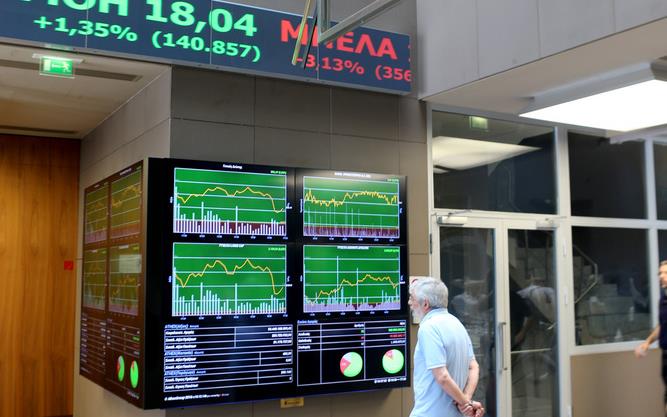The leftist-rightist coalition government went into “damage control mode” in wake of yesterday’s “Black Wednesday” for the banking index the Athens Stock Exchange (ASE), with anonymous finance ministry circles first referring to an “excessive” reaction against Greek bank shares and blaming a media report, in fact.
The “mini crash” of the ASE’s banking index on Wednesday was initially caused by a Bloomberg dispatch, according to the (unofficial) Greek government reaction.
In a prickly statement carried by the country’s state-run news agency, sources reportedly said that “…just like every other time, a Bloomberg report caused an over-reaction by markets.”
In a bid to allay investors’ concerns over Greek banks’ recent lackluster results and increasingly urgent efforts to reduce and finance Olympus-sized piles of “bad debt” entailed in NPEs and NPLs, the same finance ministry sources simply pointed to the Tsipras government not only meeting, but exceeding, ambitious fiscal targets and revised (downwards) growth targets for 2018 and 2019. The standing attempt by the mostly leftist Greek government to avoid already legislated social security cuts, as of January 2019, was also cited.
An unscheduled meeting was held on Wednesday evening at the Maximos Mansion government house, chaired by Greek PM Alexis Tsipras, vice-premier Yannis Dragasakis and Finance Minister Euclid Tsakalotos, among others.
A subsequent announcement underlined that Greek bank share prices do not correspond to the thrice bailed-out systemic banks’ real value, while ticking off a short list of counter-arguments, such as successful ECB “stress tests” passed last May, high capitalization rates, achieving goals to reduce “bad debt” and even an increase in Greek bank deposits over the past months.
On Thursday, a handful of left-leaning and pro-government newspapers in Athens bannered front-page headlines blaming “profiteering” for the Wednesday’s ‘mini crash’.














